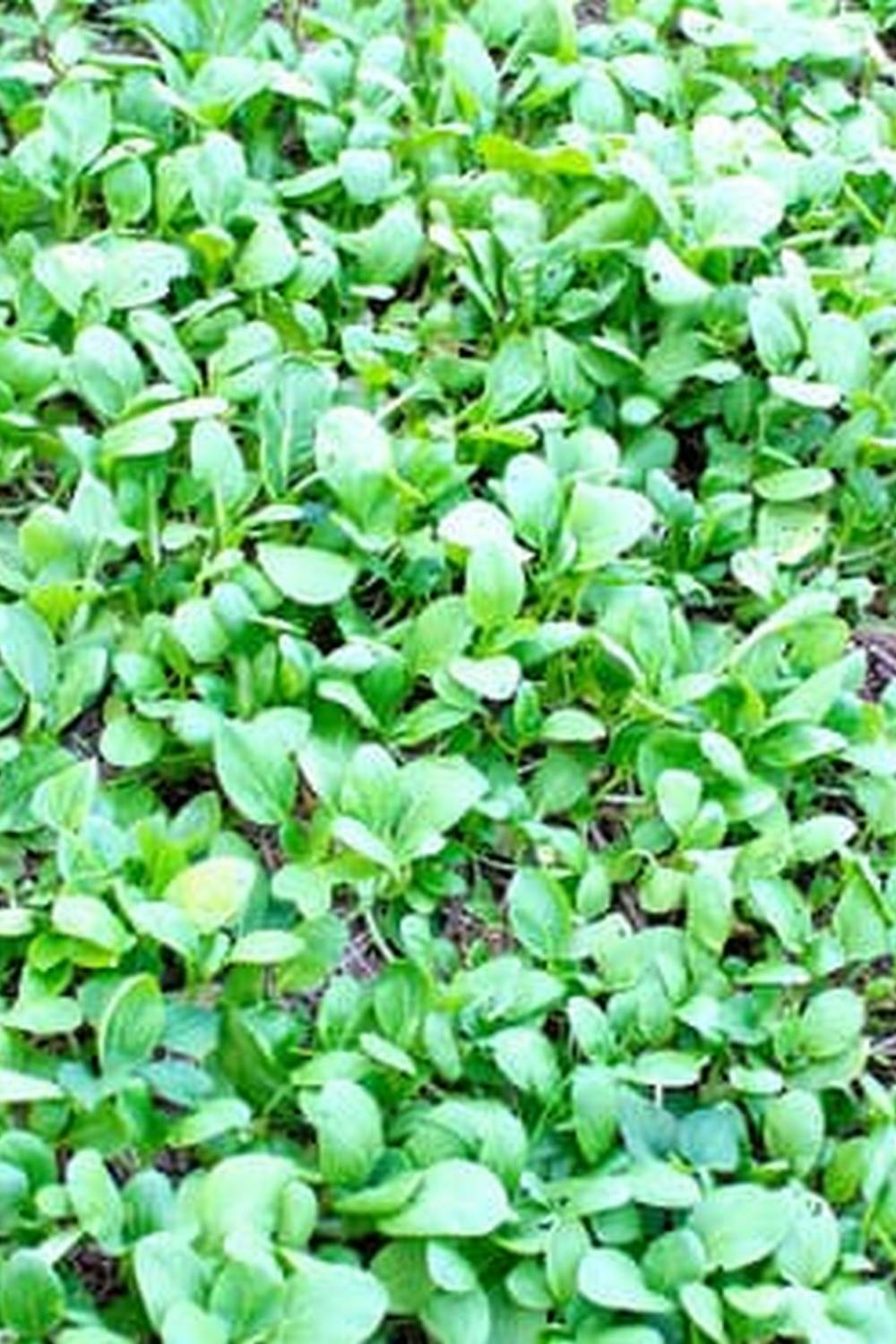Vegetable gardening has been gaining popularity among home gardeners in recent years, with many people asking themselves, “Is vegetable gardening worth it?” The concept of growing your fruits and vegetables right in your backyard or balcony is not only a rewarding hobby but also a practical way to ensure access to fresh, organic produce.
One of the key benefits of vegetable gardening is the opportunity to enjoy a constant supply of nutrient-rich foods without the use of harmful chemicals or pesticides. Additionally, cultivating your vegetables can lead to significant cost savings compared to buying them at the store. Beyond the financial aspect, tending to a garden provides an excellent form of physical exercise that promotes overall health and well-being.
In addition to the nutritional advantages, homegrown vegetables offer numerous health benefits that can positively impact one’s quality of life. From increased vitamin and mineral intake to reduced stress levels and improved mental clarity, gardening has been shown to have a profound effect on both physical and mental health. As more individuals prioritize personal wellness, the appeal of vegetable gardening continues to grow.
Benefits of Vegetable Gardening
Vegetable gardening is not just a hobby; it is a fulfilling and rewarding experience that offers a multitude of benefits to home gardeners. Here are some of the advantages that make vegetable gardening worth the effort:
- Access to Fresh, Organic Produce: One of the primary benefits of vegetable gardening is having access to fresh, organic produce right at your fingertips. By growing your own vegetables, you can ensure that they are free from harmful chemicals and pesticides, leading to a healthier lifestyle.
- Cost Savings: Another compelling reason why vegetable gardening is worth it is the potential for significant cost savings. Instead of constantly buying vegetables from the store, you can grow your own at a fraction of the cost. This can lead to substantial savings on your grocery bill over time.
- Opportunity for Physical Activity: Engaging in vegetable gardening also provides an excellent opportunity for physical activity. Tending to your garden, planting seeds, weeding, and harvesting vegetables all involve physical labor that can help you stay active and fit. It’s a great way to get moving and enjoy the outdoors.
With these benefits in mind, it’s easy to see why many people find vegetable gardening so rewarding. Not only does it provide access to fresh, healthy produce, but it also offers cost savings and promotes physical well-being. So, if you’re wondering whether vegetable gardening is worth it, consider these advantages and start reaping the rewards of growing your own food.
To further delve into the depths of whether vegetable gardening is truly worth the effort, let’s explore another keyword – sustainability. By growing your own vegetables at home, you are actively contributing to environmental sustainability by reducing your carbon footprint. Here’s how:
- Reduced Food Miles: Growing your own vegetables means fewer transportation miles from farm to table, reducing greenhouse gas emissions associated with food distribution.
- Promotion of Biodiversity: Vegetable gardens create habitats for beneficial insects and pollinators, promoting biodiversity in your backyard ecosystem.
- Less Waste: When you grow only what you need and can consume from your garden, there is less food waste compared to store-bought produce that may go bad before being eaten.
By considering these environmental impacts alongside the personal benefits of vegetable gardening, one can conclude that cultivating a vegetable garden is not just personally rewarding but also contributes positively to our planet.
Health Benefits
Nutritional Value of Homegrown Vegetables
Homegrown vegetables are known to be packed with essential nutrients that are often lost during transportation and storage of store-bought produce. By growing your own vegetables, you have the advantage of consuming them at peak freshness, ensuring that you get the maximum nutritional benefits. Vegetables like tomatoes, peppers, spinach, and kale are rich in vitamins, minerals, and antioxidants that are vital for maintaining a healthy diet.
Positive Impact on Health and Well-Being
Consuming homegrown vegetables has been linked to numerous health benefits, including reducing the risk of chronic diseases such as heart disease, diabetes, and certain types of cancer. The high fiber content in fresh vegetables also aids in digestion and helps maintain a healthy weight. Moreover, knowing that you are eating organic produce free from harmful pesticides and chemicals can give you peace of mind about what you are putting into your body.
Incorporating Homegrown Vegetables Into Your Diet
One of the key advantages of having a vegetable garden is the convenience of having a variety of fresh produce readily available for consumption. You can easily incorporate these nutrient-dense vegetables into your daily meals by creating delicious salads, stir-fries, smoothies, or simply enjoying them raw as snacks.
By embracing a diet rich in homegrown vegetables, you not only nourish your body but also develop a deeper appreciation for the food you eat. Overall, when considering whether vegetable gardening is worth it, the significant health benefits it provides make it a valuable investment in your well-being.
Environmental Impact
The environmental impact of vegetable gardening is substantial and plays a crucial role in promoting sustainability. One of the key ways in which vegetable gardening contributes to environmental conservation is by reducing carbon footprint. When vegetables are grown locally in home gardens, the need for transportation from farms to stores is minimized, leading to lower greenhouse gas emissions.
Additionally, home gardeners have more control over the use of environmentally friendly practices such as composting, mulching, and natural pest control methods, further decreasing their carbon footprint. By opting for homegrown vegetables, individuals can actively participate in reducing their environmental impact and promoting eco-friendly habits.
Another significant aspect of vegetable gardening is its promotion of biodiversity. When individuals cultivate various types of vegetables in their gardens, they help diversify plant species and create a more resilient ecosystem. This diversity not only attracts beneficial insects and pollinators but also enhances soil health through improved nutrient cycling.
Furthermore, by growing a diverse range of vegetables, gardeners can contribute to preserving heirloom varieties that are at risk of extinction due to commercial agriculture focusing on a limited number of high-yielding crops. Promoting biodiversity through vegetable gardening is essential for maintaining a healthy environment and ensuring food security for future generations.
In evaluating whether vegetable gardening is worth it from an environmental perspective, it becomes evident that the benefits extend beyond personal satisfaction. By engaging in sustainable gardening practices at home, individuals actively participate in environmental conservation efforts and contribute to global initiatives aimed at combating climate change and preserving biodiversity. While there may be challenges involved in maintaining a vegetable garden, the long-term positive impact on the environment outweighs any obstacles faced along the way.
| Environmental Impact Aspects | Benefits |
|---|---|
| Reduced Carbon Footprint | Minimized need for transportation from farms to stores leads to lower greenhouse gas emissions. |
| Promotion of Biodiversity | Diverse plant species attract beneficial insects and enhance soil health while preserving heirloom varieties. |
Therapeutic Effects
Stress Relief Through Gardening
One of the key benefits of vegetable gardening that is often overlooked is its therapeutic effects on mental health. The simple act of tending to plants, watching them grow, and harvesting the fruits of your labor can be incredibly calming and stress-relieving.
Engaging with nature in a hands-on way has been shown to reduce cortisol levels, the hormone associated with stress, and promote relaxation. Many gardeners find solace in the peaceful environment of their gardens, away from the hustle and bustle of daily life.
Improved Mood and Well-Being
In addition to reducing stress, vegetable gardening can also have a positive impact on overall mood and well-being. The physical activity involved in gardening releases endorphins, also known as “feel-good” hormones, which can help improve mood and combat feelings of anxiety or depression.
Furthermore, the sense of accomplishment that comes from growing your own food can boost self-esteem and provide a sense of purpose. Studies have shown that spending time in nature and engaging in gardening activities is linked to improved mental health outcomes.
Connection to Nature
Another therapeutic aspect of vegetable gardening is the connection it fosters between individuals and nature. Taking care of plants and observing their growth cycles can help people develop a deeper appreciation for the natural world around them. This sense of interconnectedness with the environment can bring about feelings of contentment and inner peace.
For many gardeners, spending time outdoors among their plants provides a much-needed escape from the stresses of modern life. Considering these mental health benefits, it is evident that vegetable gardening goes beyond just producing food-it nurtures the mind and soul as well.
Challenges of Vegetable Gardening
Vegetable gardening undoubtedly offers a plethora of benefits, but it also comes with its fair share of challenges. One of the most common obstacles that gardeners face is dealing with pests that can wreak havoc on their hard work.
From aphids to slugs, these tiny intruders can quickly damage or destroy crops if not managed effectively. Implementing organic pest control methods, such as companion planting or using natural repellents like neem oil, can help protect your plants without relying on harmful chemicals.
Another challenge that gardeners often encounter is unpredictable weather conditions. Sudden frosts, heatwaves, or extended periods of rain can adversely affect the growth and development of vegetables in your garden. To mitigate this risk, consider investing in season-extending tools like row covers or cold frames to protect your crops from extreme temperatures. Additionally, monitoring weather forecasts regularly and adjusting your planting schedule accordingly can help you adapt to changing conditions and ensure a successful harvest.
Time commitment is another factor that many aspiring vegetable gardeners may underestimate. While establishing a garden requires effort upfront, ongoing maintenance tasks such as watering, weeding, and harvesting can be time-consuming.
Creating a realistic gardening schedule and prioritizing tasks based on seasonal demands can help you stay organized and make the most of your time in the garden. Remember that the satisfaction of growing your own food and enjoying the fruits of your labor is worth the dedication and effort put into vegetable gardening.
| Challenges Faced | Solutions |
|---|---|
| Pests | Implement organic pest control methods like companion planting or natural repellents. |
| Weather Conditions | Invest in season-extending tools like row covers or cold frames; monitor weather forecasts regularly. |
| Time Commitment | Create a realistic gardening schedule; prioritize tasks based on seasonal demands. |
Cost Analysis
Vegetable gardening is a rewarding activity that not only allows individuals to enjoy fresh, organic produce but also brings a sense of satisfaction and accomplishment. When considering whether vegetable gardening is worth it, one crucial aspect to examine is the cost analysis involved in setting up and maintaining a garden compared to purchasing store-bought produce. While there may be initial investments and ongoing expenses associated with vegetable gardening, the long-term benefits can outweigh these costs.
One of the primary advantages of growing your own vegetables is the potential for cost savings. By investing in seeds or seedlings, gardening tools, soil amendments, and other necessary supplies upfront, individuals can ultimately cut down on their grocery bills over time. Additionally, homegrown produce typically has higher quality and nutritional value compared to commercially grown vegetables, making it a worthwhile investment in one’s health and well-being.
Another factor to consider in the cost analysis of vegetable gardening is the maintenance expenses involved. This includes factors such as water usage, fertilizer or compost materials, pest control measures, and potential upgrades to garden infrastructure.
While these costs may add up initially, they can be offset by the abundance of produce that can be harvested throughout the growing season. Ultimately, the satisfaction of being self-sufficient and enjoying the fruits of your labor firsthand is priceless for many avid gardeners who find solace in tending to their plots.
Personal Stories
Vegetable gardening is not just a hobby for many individuals, but a way of life that brings about numerous rewards and challenges. Many avid gardeners find immense satisfaction in being able to step out into their own backyard and harvest fresh, organic produce straight from the vine.
For them, the taste of a homegrown tomato or the crunch of a freshly picked cucumber is incomparable to store-bought options. In addition to the superior flavor, having control over what goes into the soil and onto their plants allows these gardeners to enjoy peace of mind knowing that they are consuming nutritious and chemical-free vegetables.
One key aspect that repeatedly emerges from personal stories shared by vegetable gardeners is the sense of accomplishment it brings. Witnessing seeds sprout, plants grow, and eventually harvesting the fruits (or vegetables) of their labor creates a profound connection to nature and the food they eat.
This hands-on approach not only instills appreciation for the hard work behind agriculture but also fosters a deeper understanding of where our food comes from. Furthermore, being able to share surplus produce with neighbors, family, and friends can foster a sense of community and camaraderie among gardeners while spreading the joy of homegrown goodness.
However, along with the joys come challenges that every gardener must face at some point in their journey. Dealing with pests like aphids or battling unpredictable weather patterns can test one’s patience and resilience. Moreover, finding the time to tend to a thriving vegetable garden amidst busy schedules can be daunting.
Despite these obstacles, many dedicated vegetable gardeners find creative solutions or seek advice from fellow enthusiasts to overcome hurdles along the way. The willingness to adapt and learn from failures is part of what makes vegetable gardening an enriching experience that constantly offers opportunities for growth and improvement.
Conclusion
In conclusion, vegetable gardening offers a multitude of benefits that make it worth the effort for many individuals. The access to fresh, organic produce right from your backyard not only provides cost savings but also ensures a healthier lifestyle with nutrient-rich vegetables.
The physical activity involved in tending to a garden can contribute to overall well-being, promoting both physical and mental health. Furthermore, the environmental impact of vegetable gardening cannot be understated, as it promotes sustainability by reducing carbon footprint and supporting biodiversity.
While challenges like pests, weather conditions, and time commitment may arise, the rewards of vegetable gardening often outweigh these obstacles. Many gardeners find solace and therapeutic effects in nurturing their plants, experiencing stress relief and improved mood as they witness their hard work come to fruition. Additionally, the cost analysis shows that despite initial investments and maintenance costs, homegrown vegetables can still be more economical than store-bought produce in the long run.
Personal stories shared by real gardeners reveal the sense of fulfillment and satisfaction derived from growing their own food. From beginners learning through trial and error to experienced gardeners passing down knowledge through generations, vegetable gardening is not merely a hobby but a way of life for many.
In the end, the decision on whether vegetable gardening is worth it depends on individual preferences and priorities. However, for those looking to reap the rewards of fresh produce, better health, environmental stewardship, and personal fulfillment – vegetable gardening proves itself as a worthwhile endeavor.
Frequently Asked Questions
Is It Cheaper to Grow Vegetables or Buy Them?
Growing vegetables can be cheaper in the long run, especially if you have the space and resources to do so. While there are upfront costs for supplies like seeds, soil, and tools, the savings on produce over time can make it worthwhile.
Is It Good to Have a Vegetable Garden?
Having a vegetable garden is beneficial for many reasons. Not only does it provide access to fresh, organic produce right at your doorstep, but it also promotes physical activity, reduces stress, and encourages a connection with nature. It can be a rewarding and enjoyable hobby.
Is a Vegetable Garden Profitable?
Whether a vegetable garden is profitable depends on various factors such as the size of the garden, what you choose to grow, and how much effort you put into maintaining it. While some people may save money by growing their own vegetables, others might not see significant financial gains unless they sell their surplus produce.
Ultimately, the benefits of having a vegetable garden often extend beyond just financial considerations.

If you’re looking to get into vegetable gardening, or are just looking for some tips on how to make your current garden better, then you’ve come to the right place! My name is Ethel and I have been gardening for years. In this blog, I’m going to share with you some of my best tips on how to create a successful vegetable garden.





